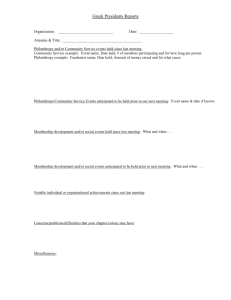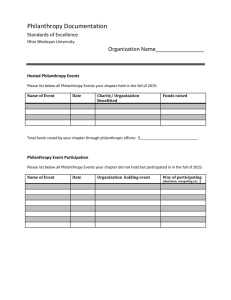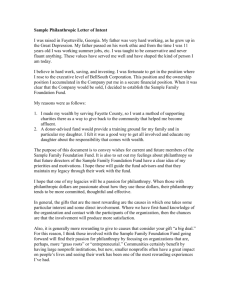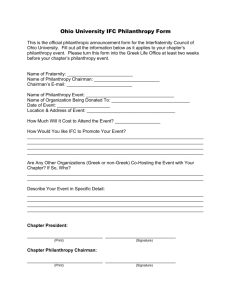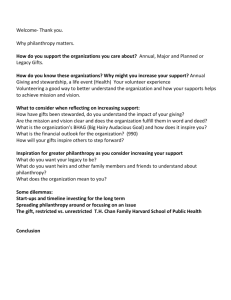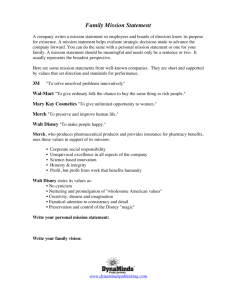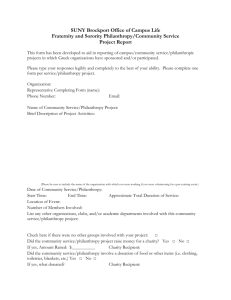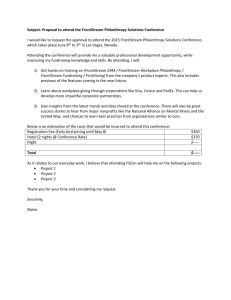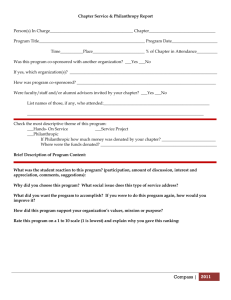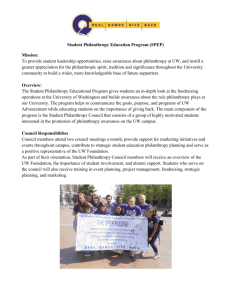Development Committee Job Description
advertisement
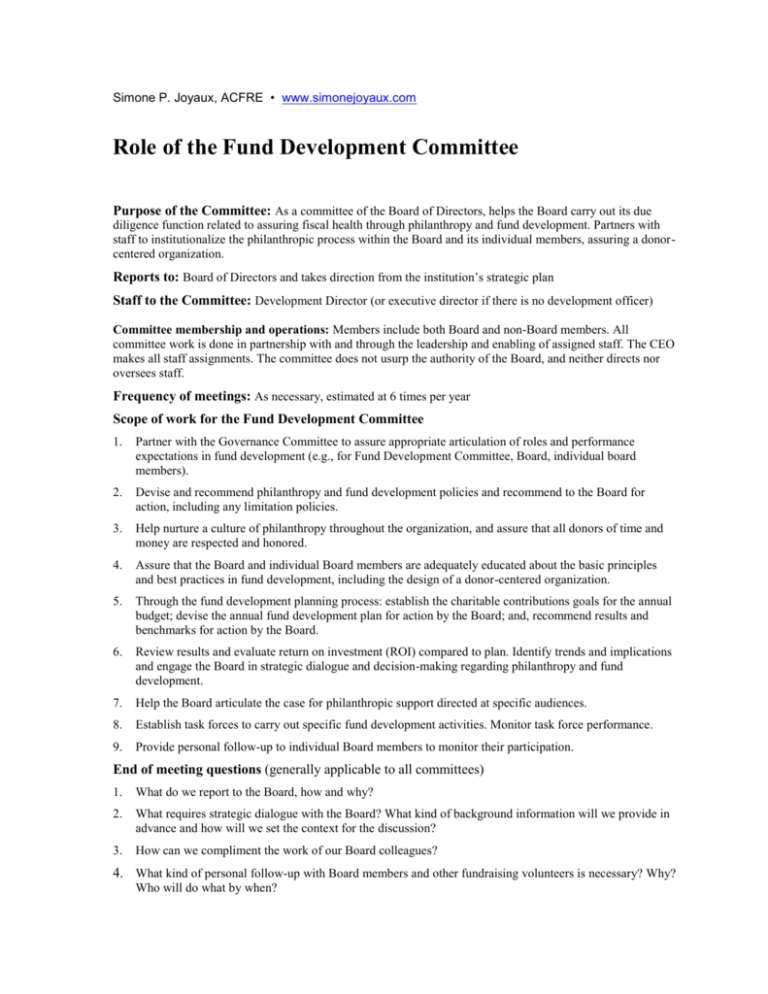
Simone P. Joyaux, ACFRE • www.simonejoyaux.com Role of the Fund Development Committee Purpose of the Committee: As a committee of the Board of Directors, helps the Board carry out its due diligence function related to assuring fiscal health through philanthropy and fund development. Partners with staff to institutionalize the philanthropic process within the Board and its individual members, assuring a donorcentered organization. Reports to: Board of Directors and takes direction from the institution’s strategic plan Staff to the Committee: Development Director (or executive director if there is no development officer) Committee membership and operations: Members include both Board and non-Board members. All committee work is done in partnership with and through the leadership and enabling of assigned staff. The CEO makes all staff assignments. The committee does not usurp the authority of the Board, and neither directs nor oversees staff. Frequency of meetings: As necessary, estimated at 6 times per year Scope of work for the Fund Development Committee 1. Partner with the Governance Committee to assure appropriate articulation of roles and performance expectations in fund development (e.g., for Fund Development Committee, Board, individual board members). 2. Devise and recommend philanthropy and fund development policies and recommend to the Board for action, including any limitation policies. 3. Help nurture a culture of philanthropy throughout the organization, and assure that all donors of time and money are respected and honored. 4. Assure that the Board and individual Board members are adequately educated about the basic principles and best practices in fund development, including the design of a donor-centered organization. 5. Through the fund development planning process: establish the charitable contributions goals for the annual budget; devise the annual fund development plan for action by the Board; and, recommend results and benchmarks for action by the Board. 6. Review results and evaluate return on investment (ROI) compared to plan. Identify trends and implications and engage the Board in strategic dialogue and decision-making regarding philanthropy and fund development. 7. Help the Board articulate the case for philanthropic support directed at specific audiences. 8. Establish task forces to carry out specific fund development activities. Monitor task force performance. 9. Provide personal follow-up to individual Board members to monitor their participation. End of meeting questions (generally applicable to all committees) 1. What do we report to the Board, how and why? 2. What requires strategic dialogue with the Board? What kind of background information will we provide in advance and how will we set the context for the discussion? 3. How can we compliment the work of our Board colleagues? 4. What kind of personal follow-up with Board members and other fundraising volunteers is necessary? Why? Who will do what by when?

